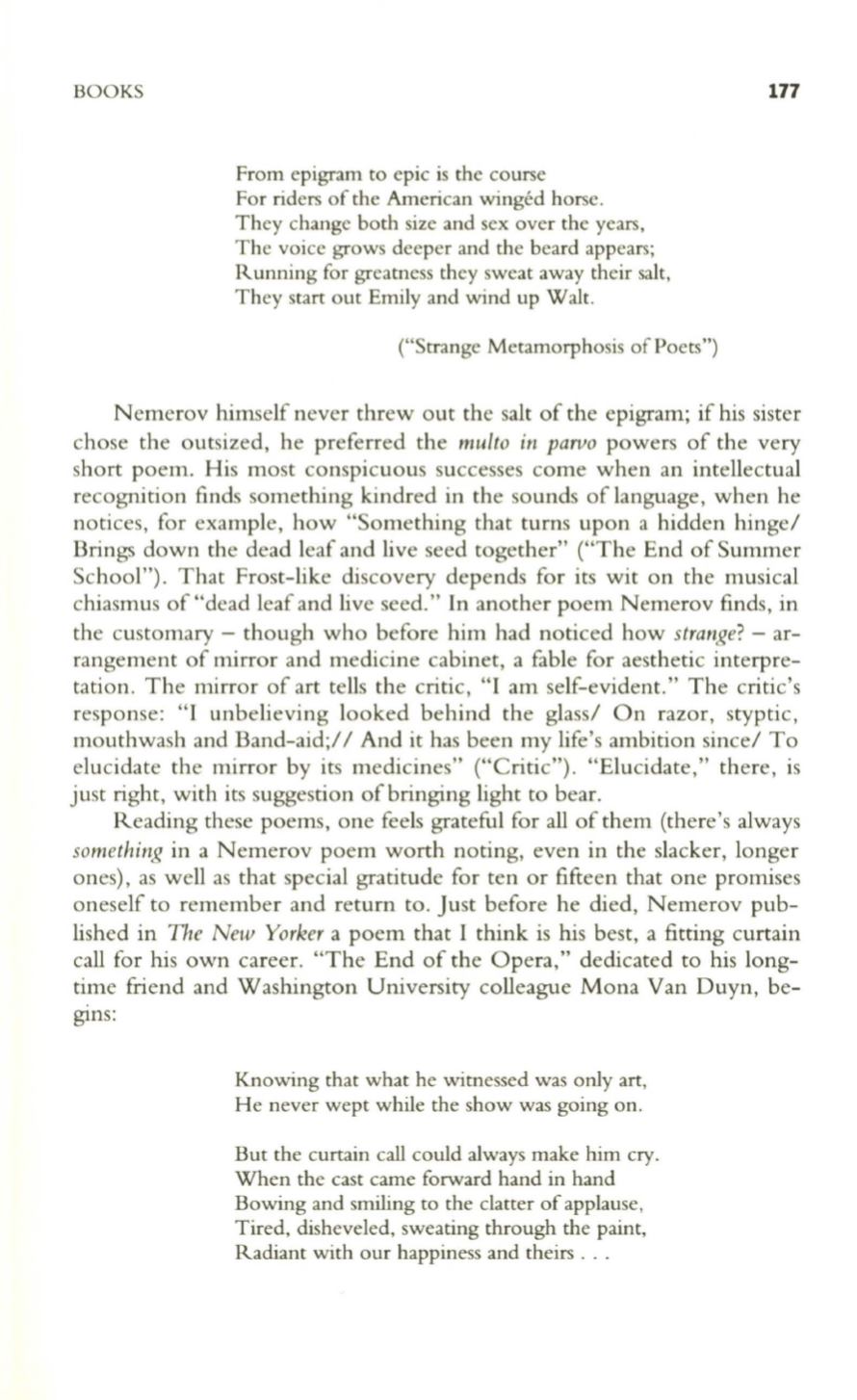
BOOKS
From epigram to epic is the course
For riders of the American winged horse.
They change both size and sex over the years,
The voice grows deeper and the beard appears;
Running for greatness they sweat away their salt,
They start out Emily and wind up Walt.
("Strange Metamorphosis ofPoets")
177
N emerov himself never threw out the salt of the epigram; if his sister
chose the outsized, he preferred the
multo in parvo
powers of the very
short poem. His most conspicuous successes come when an intellectual
recognition finds something kindred in the sounds of language, when he
notices, for example, how "Something that turns upon a hidden hinge/
Brings down the dead leaf and live seed together" ("The End of Summer
School"). That Frost-like discovery depends for its wit on the musical
chiasmus of "dead leaf and live seed." In another poem Nemerov finds, in
the customary - though who before him had noticed how
strange?
-
ar–
rangement of mirror and medicine cabinet, a fable for aesthetic interpre–
tation. The mirror of art tells the critic, "I am self-evident." The critic's
response: "I unbelieving looked behind the glass/ On razor, styptic,
mouthwash and Band-aid;/
I
And it has been my life's ambition since/ To
elucidate the mirror by its medicines" ("Critic") . "Elucidate," there, is
just right, with its suggestion of bringing light to bear.
Reading these poems, one feels grateful for all of them (there's always
something
in a Nemerov poem worth noting, even in the slacker, longer
ones), as well as that special gratitude for ten or fifteen that one promises
oneself to remember and return to. Just before he died, Nemerov pub–
lished in
The New Yorker
a poem that I think is his best, a fitting curtain
call for his own career. "The End of the Opera," dedicated to his long–
time friend and Washington University colleague Mona Van Duyn, be–
gms:
Knowing that what he witnessed was only art,
He never wept while the show was going on.
But the curtain call could always make him cry.
When the cast came forward hand in hand
Bowing and smiling to the clatter of applause,
Tired, disheveled, sweating through the paint,
Radiant with our happiness and theirs . . .


